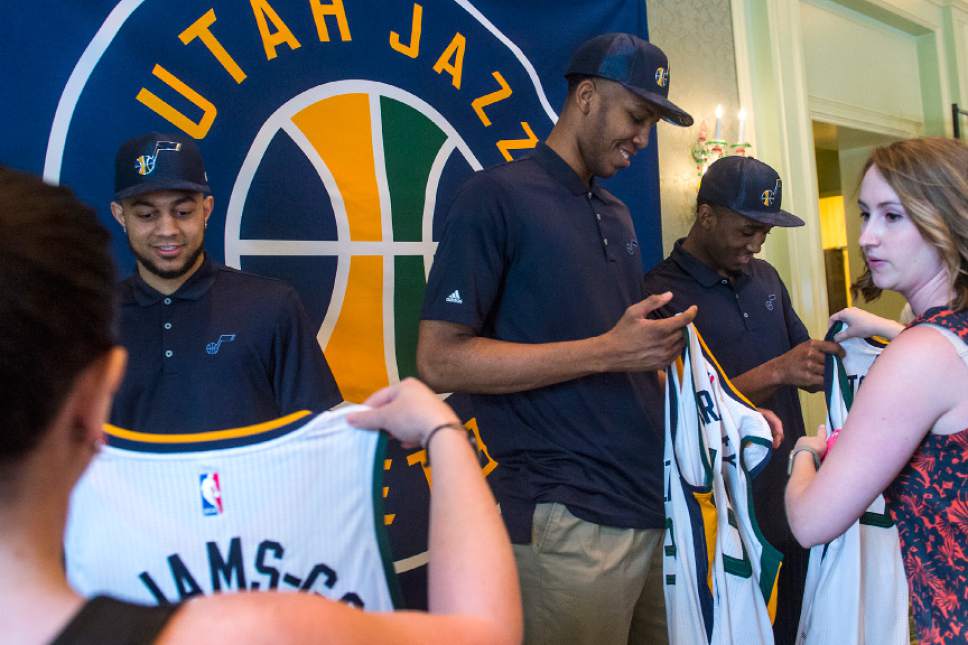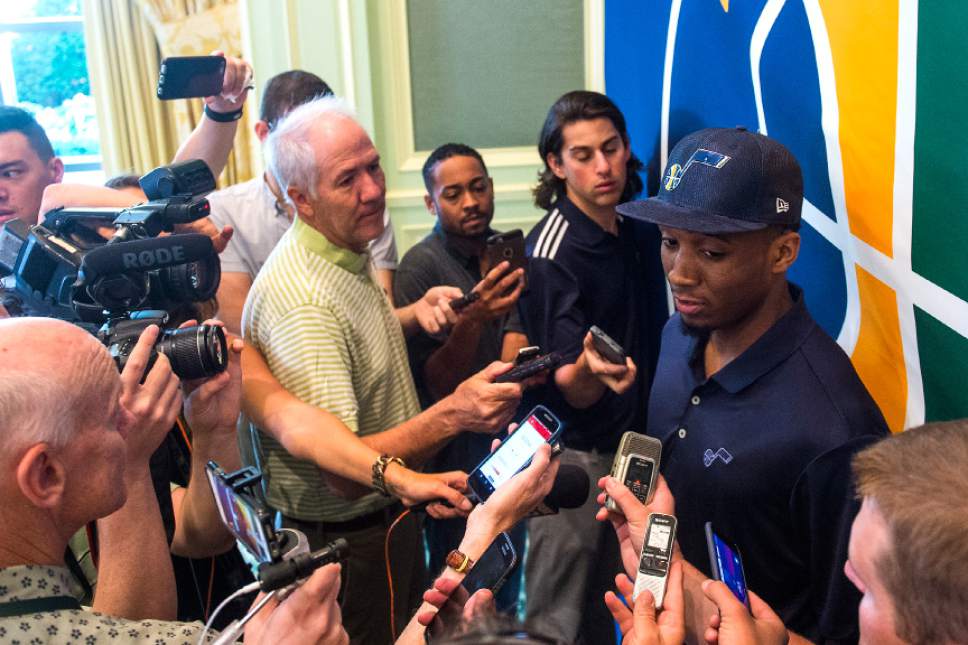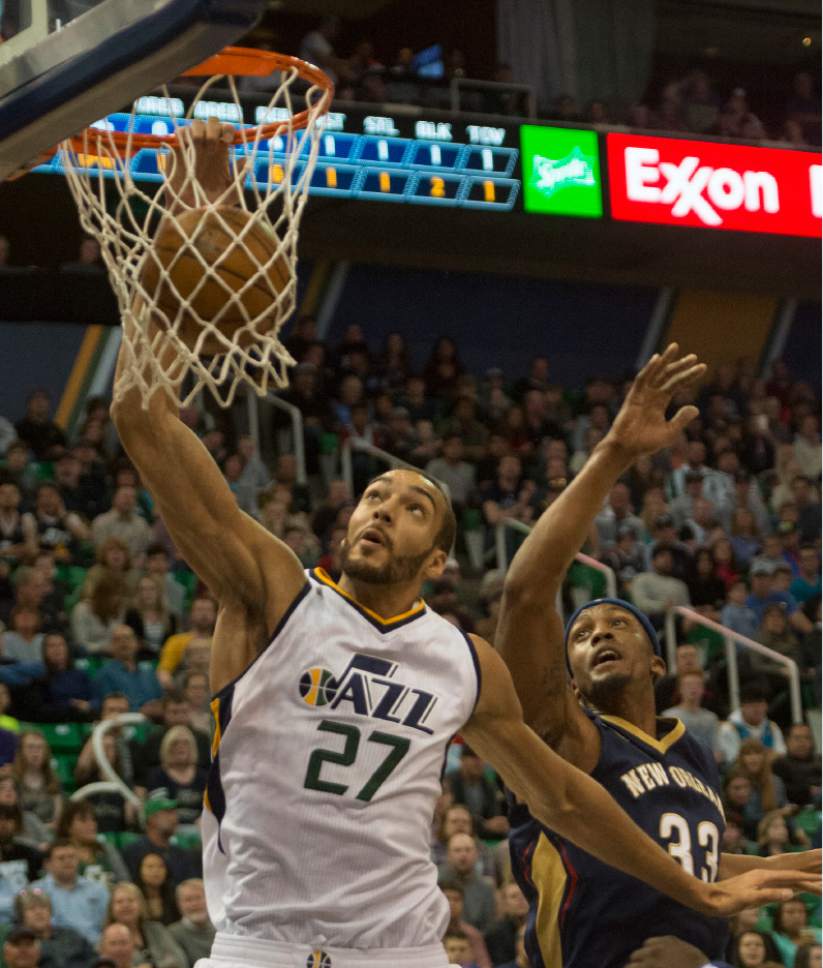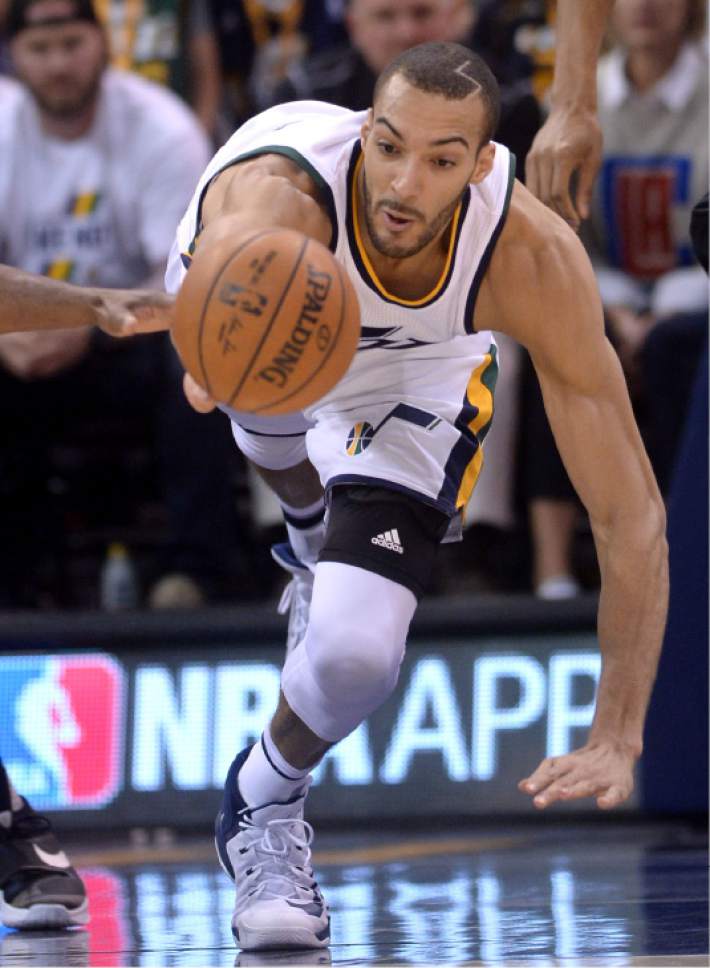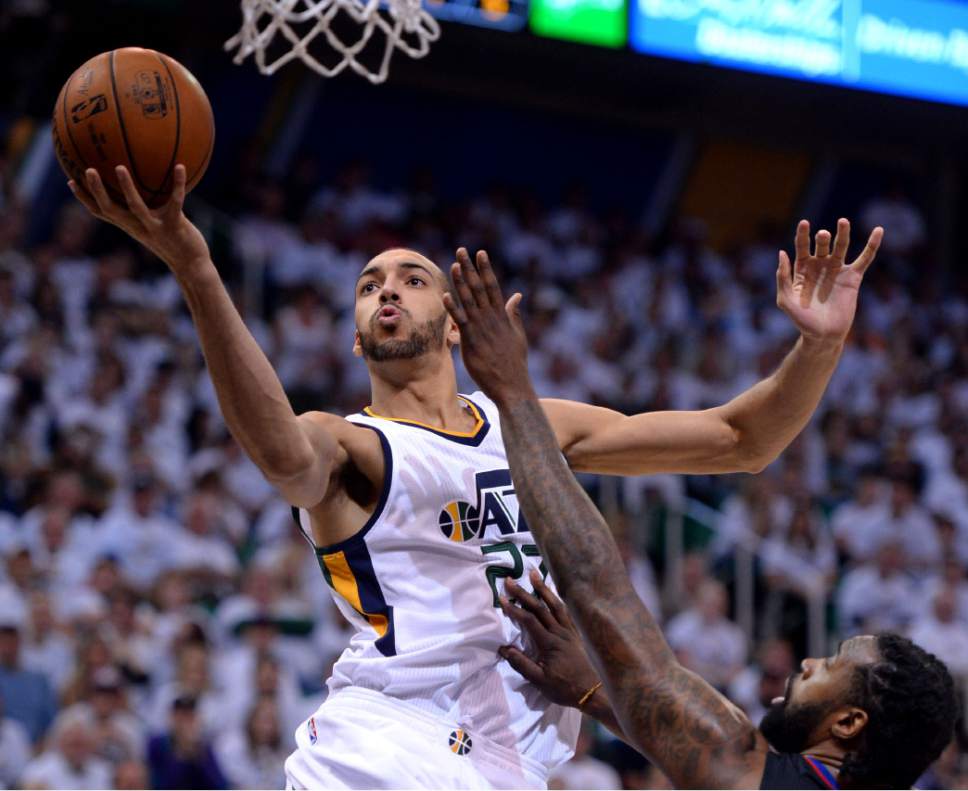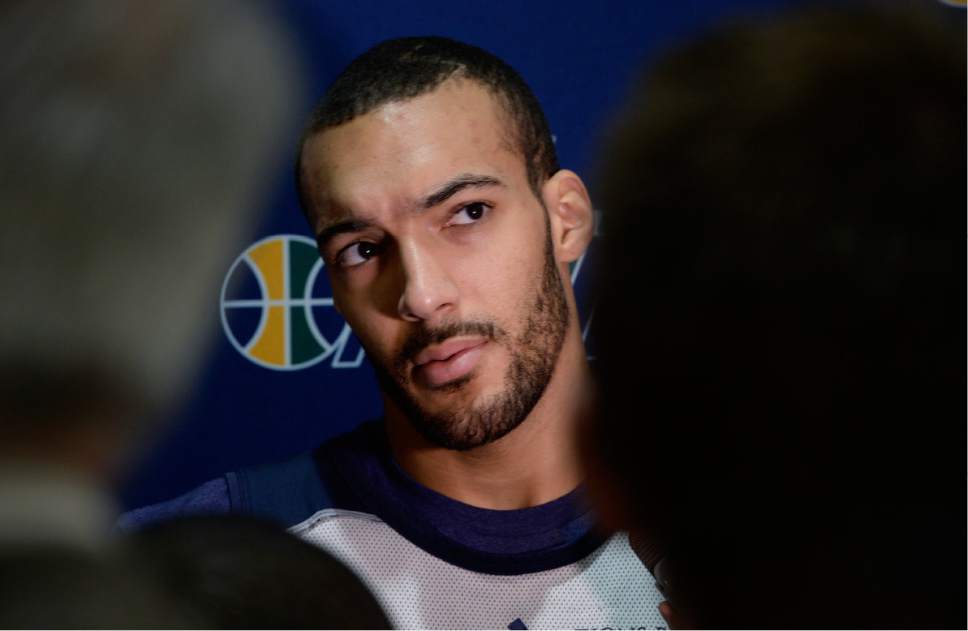This is an archived article that was published on sltrib.com in 2017, and information in the article may be outdated. It is provided only for personal research purposes and may not be reprinted.
A dark cloud hovering over the Jazz after what happened to them over the past few days is whether they ever can find their way to real contention in the modern NBA, given the league's allowances for player movement and the limitations/disadvantages stacked against smaller-market teams.
The happy answer, the blue sky, is this: San Antonio.
For the better part of two decades, the Spurs have proved the formula of building through the draft, utilizing acumen rather than money or perceived prestige/popularity of a place or simply erasing personnel mistakes by luring in big-name free agents can work. But the truth is, pulling that off takes good fortune, extraordinary circumstances and an uncommon kind of athlete(s).
When Gordon Hayward left Utah for Boston, it confirmed once again what people around here wonder and worry about — the sheer cliff some teams, including the Jazz, must scale to get where they'd like to go. It wasn't just that Hayward bailed. It was that a player like Hayward bailed.
And it made Jazz fans appreciate unique players of their past, namely John Stockton and Karl Malone, who developed their games in Salt Lake City, far beyond what most observers had expected, and when they did, they stayed with the team and coaches that helped make them great. As was evidenced by Hayward, such loyalty not only doesn't exist much anymore, the notion of it is scoffed at by the self-declared sophisticated who remind all those smaller-market rubes, the ones who pay large percentages of their income to buy tickets and devote a lot of their time to pouring their passion into their team, that … hey, it's a business.
Celtics fans have reminded Jazz fans of that this week, many of them ignoring how they reacted when Ray Allen left Boston to win a title in Miami. That wasn't emotional or bitter at all, right? Riiiiiiiiiiiiiiiigggghhhhtttt.
Dennis Lindsey said Wednesday that the Jazz would stay the course and keep on trucking, keep on scouting and drafting and building and developing, despite suffering through the difficulty of losing Hayward, a player they scouted and drafted and developed, giving him a great opportunity to prove himself and eventually turning over the team to him as its leader.
They held onto him for seven years, and as soon as he became unrestricted … well, he was, as they used to say, Audi Five-thou.
The challenge for a team like the Jazz in a city like Salt Lake is as mentioned: You build the right way, selecting and refining players, then when they are selected and refined, they use that refinement to jump elsewhere. Curt Flood initiated and made that freedom possible many, many years ago. Some of us remember when that happened.
It's terrific for players, terrifying for teams. Some teams.
The counter is this: Build an outfit that's great enough, attractive enough to keep its players, come whatever suitors may, even if the home base isn't a huge metropolis. That's what San Antonio did, winning five championships while key pieces of those stellar teams played for considerably less money than they could have. That's the ideal. That's a herd of unicorns.
Lindsey, who came here from the Spurs, indicated that Hayward was a unique case. He had his reasons, whatever they really were, for leaving. But the worried fan might question, if the Jazz can't retain a young family man like Hayward, with a wife and kids, how can they hang onto players who make millions of dollars and might like to spend some of it hanging at a plethora of nightspots downtown? Yeah, we know, we saw the T-shirts: Salt Lake has its share of nightlife, its share of entertainment, and it's underrated in many ways, but … it ain't South Beach.
It's a convenient place to live, a great community, with mountainous scenery that's tough to beat. But not certain how much of a draw that is for the superstars in and around the league. Who's the biggest free agent the Jazz ever have signed? Carlos Boozer? Mehmet Okur? Joe Johnson?
Lindsey said if that stereotype persists, he has a different story to tell. He wants to change the narrative and alter the results. The Jazz's money is as good as anyone else's. They have fantastic, committed ownership, an enlightened front office, a passionate fan base that is savvy enough to be critical at times but supportive enough to be a bonus for players.
Maybe the Jazz will have to probe a bit deeper when they draft players, trying to determine what their attitudes are about playing and living here before they select them. That's a hard thing to do because 1) players are so young when they're taken and 2) so many of them don't know much about Utah before they get here.
The signature feature about Donovan Mitchell, one that made him so popular among Jazz fans before he started in on distinguishing himself during summer league games, was the enthusiasm he showed when he found out it was the Jazz who orchestrated his selection in the draft, a realization punctuated with a fist pump. That goes a long way around here. If he really can play, the fans absolutely will embrace the kid.
He's smart. Is he sincere? It sure looks like it.
One clarification: Salt Lake City doesn't need 20-something pro basketball players to love it to sustain its collective self-esteem. This place is extraordinary in many ways, and most of the people here are fully aware. It does need at least a few 20-something pro basketball players to love it to sustain a championship-contending team. And the best way for that to happen is to get a foothold with a couple of great players. The Jazz have one in Rudy Gobert. Who else will step up?
That's what Lindsey and Quin Snyder are working on, even with the loss of You-Know-Who. Scout well. Draft well. Develop well. And in a few cases, trade well and recruit well and sign well.
They really have no other choice.
GORDON MONSON hosts "The Big Show" with Spence Checketts weekdays from 3-7 p.m. on 97.5 FM and 1280 AM The Zone. Twitter: @GordonMonson.


